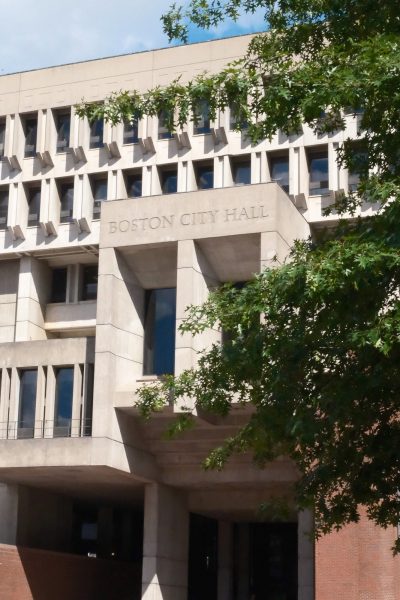The Boston City Council discussed the impending cuts to Supplemental Nutrition Assistance Program in November during its Wednesday meeting.

The Council also discussed pedestrian safety, youth homelessness and a proposal for higher tax rates on large and luxury apartments.
Councilors passed a resolution “condemning the Trump administration’s failure to fully fund” SNAP, which will lapse Nov. 1 if the government shutdown continues, impacting more than 1 million Massachusetts residents.
“Food is not a privilege. It is a human right,” said Councilor Gabriela Coletta Zapata. “This is not about a deficit of resources … It is about a deficit of empathy.”
According to a press release from the Healey Administration, 32% of SNAP beneficiaries in Massachusetts are children. 31% are people with disabilities, and 26% are seniors.
“Here we are again as municipal leaders trying to clean up the mess and distress caused by our president that seems not to care about what our day-to-day individuals are going through,” Councilor Enrique Pepén said.
The Council also discussed the ongoing housing affordability crisis in Boston, with Councilor Brian Worrell proposing a tax hike on large and luxury housing developments and a decrease for smaller property owners.
“Homeowners and small landlords are carrying a heavier load, while large apartment owners often pay less,” Worrell said. “Same city, same services, but the people with less are paying more.”
The proposal was met with resistance from other members of the council, including Councilor Sharon Durkan, who said tax hikes would inhibit and disincentivize the construction and development of new housing.
Many of the apartment buildings in Durkan’s district would be subject to tax hikes, including buildings that house the “most vulnerable tenants,” who she said will bear the brunt of the tax increase.
“We urgently need to build more housing, not create barriers that will make it harder to do so,” Durkan said. “It feels like this proposal is a gut punch at the wrong time … Housing abundance and density are the way out of this crisis.”
Councilor Liz Breadon also expressed concerns about the proposed tax increase, specifically as it relates to large apartment buildings in her district, Allston-Brighton.
Breadon also echoed Durkan’s concerns about the cost of increased taxes being passed on to tenants, who comprise 80% of Allston-Brighton.
“This is definitely worth looking at, but I think it deserves a really thorough review,” Breadon said.
The Council also passed a resolution recognizing October as Pedestrian Safety Month. Representatives from numerous organizations including Walk Massachusetts, Transportation for Massachusetts and the Boston Cyclists Union spoke about the importance of safe city streets for pedestrians.
“Our streets and sidewalks are the biggest real estate we all share, and yet we have not made [them] truly a space for everyone to feel safe,” Reggie Ramos, executive director of Transportation for Massachusetts, said.
Council members continued to discuss the challenges the city has faced regarding pedestrian safety and infrastructure. Durkan mentioned pedestrians getting struck by vehicles in her district, with one pedestrian fatality as a result.
“We have to be working towards a city where walkability and pedestrian safety are built into every part of our planning process,” Durkan said.
The Council also passed a resolution recognizing November as Youth and Young-Adult Homelessness Awareness Month.
Councilors discussed the issues at-risk youth populations face in securing housing, such as poverty, transitioning out of the foster care system, abuse and LGBTQ+ youth being kicked out on account of their identities.
“Housing is a human right,” Councilor Henry Santana said. “When we fail to safeguard that right, our residents, especially our youth, suffer the consequences.”






















































































































